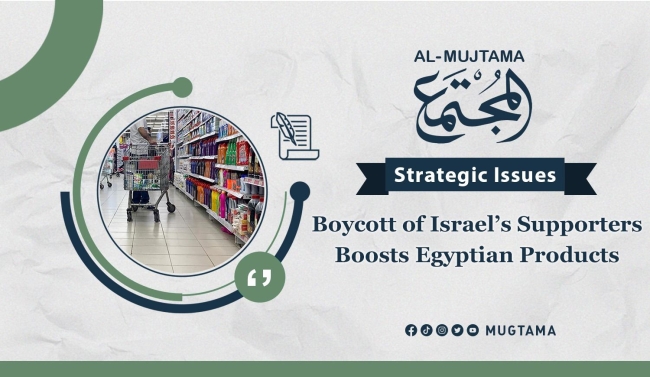Boycott of Israel’s Supporters Boosts Egyptian Products Featured
A Local Success Story
In Cairo, Antar Sultan, a wholesaler of food products, faced a challenge when he had stacks of unsold "Pepsi-Cola" and "Coca-Cola" bottles in his warehouses. No one wanted to buy them. In a stroke of luck, he discovered Spiro Spats, a local company that produces carbonated water. He placed a large order with them, and they promised to fulfill it soon.
Spiro Spats, owned by three Egyptian brothers, has a long history in Egypt. It was founded by a Greek national in 1920 and has since become a popular brand. Recently, the company has experienced a surge in demand due to ongoing boycott campaigns against Western companies that support Israel.
Supporting Local Products
After the Palestinian resistance operation known as "Al-Aqsa Flood" shook Israel, Egyptians began to show their support for local products. Consumers started boycotting Western brands and instead embraced slogans like "Boycott," "Encourage your country's product," and "Proudly made in Egypt."
A Boost for Spiro Spats
Overnight, Spiro Spats found itself inundated with calls from retail outlets and restaurants looking for an alternative to international sparkling water brands. The company's production tripled in less than a month, leading to the creation of thousands of new jobs.
Antar Sultan, the wholesaler, shared his experience: "After a lot of effort, I contacted Spiro Spats officials, and I'm now waiting for a large order to arrive in a few days. Retailers insisted on having local alternatives."
Benefits for Local Businesses
Umm Karma, an online store owner in Mansoura, noticed a significant increase in demand for local products after the boycott campaigns gained momentum. She said, "Consumers are accepting our locally developed products in terms of quality and packaging."
In the Faisal area of Giza Governorate, Essam Hassan, a food store owner, decided to support the boycott by removing Western products from his shelves. He said, "Sometimes the buyer asks: Is this product with us or against us? So we point them to the local alternative, in support of the Egyptian industry and a victory for Al-Aqsa."
Positive Economic Impact
Economic expert Abdul Nabi Abdul Muttalib believes that the boycott of Western goods in support of Palestine can lead to increased demand for local products. This, in turn, encourages local producers to invest in alternative goods and protects the Egyptian economy from collapsing. It also creates job opportunities and attracts foreign direct investments in industries that have gained popularity.
Abdul Muttalib concludes that the boycott not only benefits local manufacturers but also generates a range of benefits for the economy as a whole.
Source: Al Jazeera


